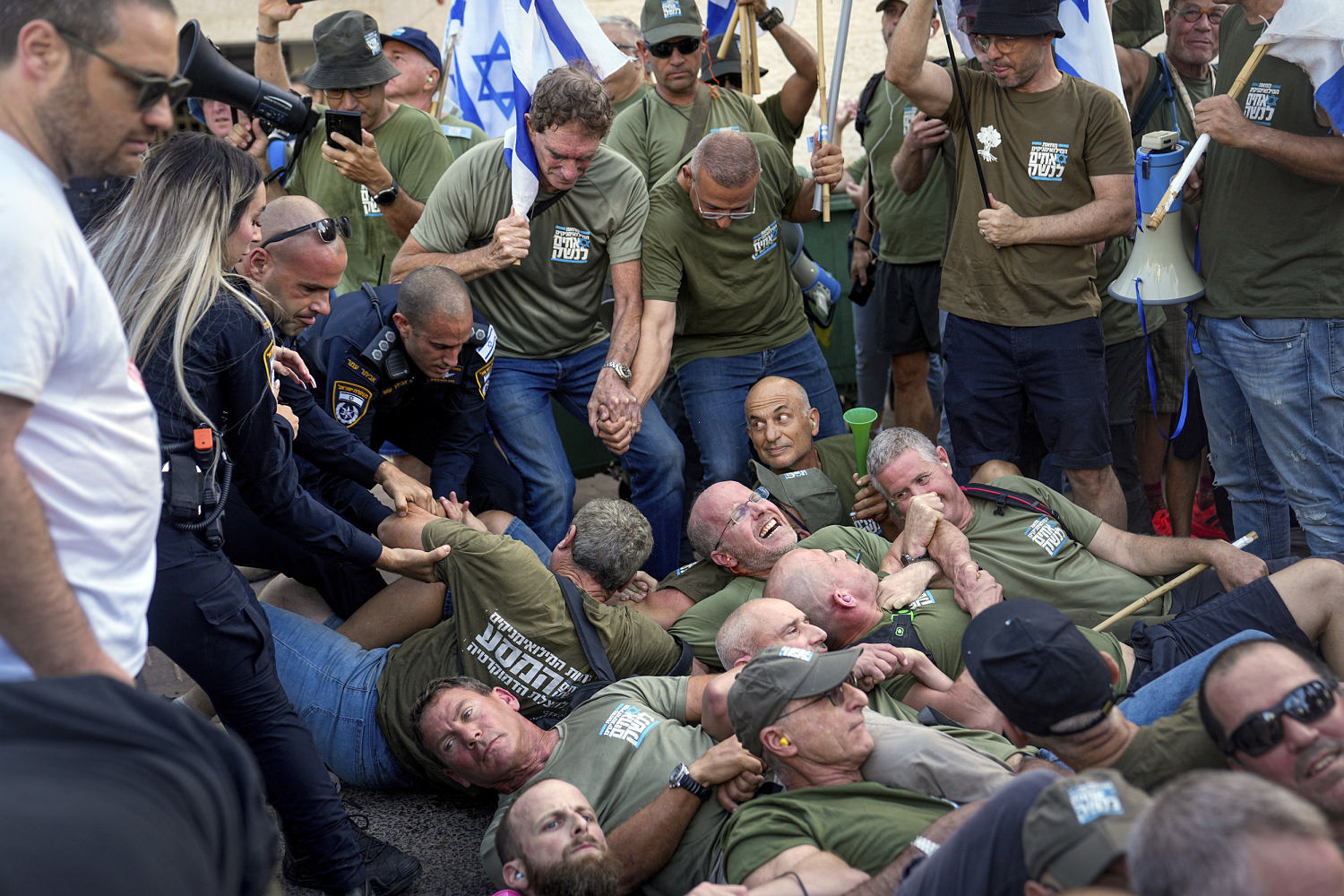[ad_1]

Warned to stay ‘vigilant’
While concern over the planned changes has been pushed aside for now, some believe the issue and the widespread division it caused may have made Israel appear weak to its enemies ahead of the Oct. 7 attack.
In the months before Oct. 7, such concerns were repeatedly raised, with Israel’s air force chief, Maj. Gen. Tomer Bar, telling his forces in July to stay “vigilant and prepared.”
“It is possible that at a time like this, they will try to test the frontiers, our cohesion and our alertness,” he said, referring to Israel’s enemies in an address to troops, according to Reuters.
At the time, Netanyahu said the planned judicial changes were “a minor correction” to an “activist” court. “It’s described as the end of Israeli democracy — I think that’s silly and when the dust settles, everybody will see it,” he told ABC News’ George Stephanopoulos in an interview on “Good Morning America.”
“Instead of actually being supremely alert and vigilant and just listening” to the warnings, Golov said, Netanyahu brushed them off and pushed ahead with the planned changes.
Golov, who has a doctorate in biology, said he agreed with Bar’s concerns, saying he believes the government’s push for judicial changes likely made Israel appear as if it had a weakened “immune system” to its enemies.
“If you ask me, a host with a nonfunctional immune system is the best for a pathogen to penetrate,” he said.
One mid-ranking IDF officer, who spoke on the condition of anonymity as she is not authorized to speak to the media, said there was a “sense of frustration that maybe we spent so much time focusing on, or maybe being divided, that we sort of missed possibly something really big that was happening in the background.”
Yohanan Plesner, president of the Israel Democracy Institute, a center based in Tel Aviv that says its mission is to strengthen the foundations of Israeli democracy, said he also believed it was possible that Hamas, to some extent, “jumped the gun” and mistook the “internal processes within Israel as an internal weakness.”
However, he said, even if Hamas leapt on a perceived opportunity to attack, he believed plans for such an assault would likely have been in the works for some time and regardless of the political situation within Israel.
And, he said, if Hamas thought the attack would weaken Israel, it was wrong, with the Oct. 7 ambush bringing many Israelis together and invoking a sweeping sense of unity within the military.
‘It’s a paradox’
Golov said that in a matter of days, Brothers and Sisters in Arms has gone from organizing protests to focusing on defending Israel, while also coordinating efforts to support those impacted by Hamas’ attack.
“You won’t find even one person right now that is not 100% dedicated to defending the country,” he said of Israeli military members.
An IDF spokesperson said that there has been “massive enlistment for reserve service all over Israel,” with more than 350,000 people reporting for duty in less than 48 hours after the attack.
Nimrod Palmach, a reservist who raced to southern Israel the morning of Oct. 7 after hearing about the attack unfolding near Gaza’s border, said he was relieved to see unity restored to Israeli troops.
“It’s a paradox,” said Palmach, who said he personally was “on the other side politically” of those opposed to the proposed judicial changes. “On the one hand, it’s a super sad time and a shocking time, and on the other hand it’s very good and it’s giving me a lot of joy,” he said.
While Golov said he was also glad to see unity restored, he believes that eventually someone will have to take responsibility for the failures that allowed Hamas’ attack to take such a devastating toll.
And even then, he said: “Responsibility is not the remedy.”
“All of the government, including the prime minister, they have to be replaced,” Golov said.
[ad_2]
Source link
